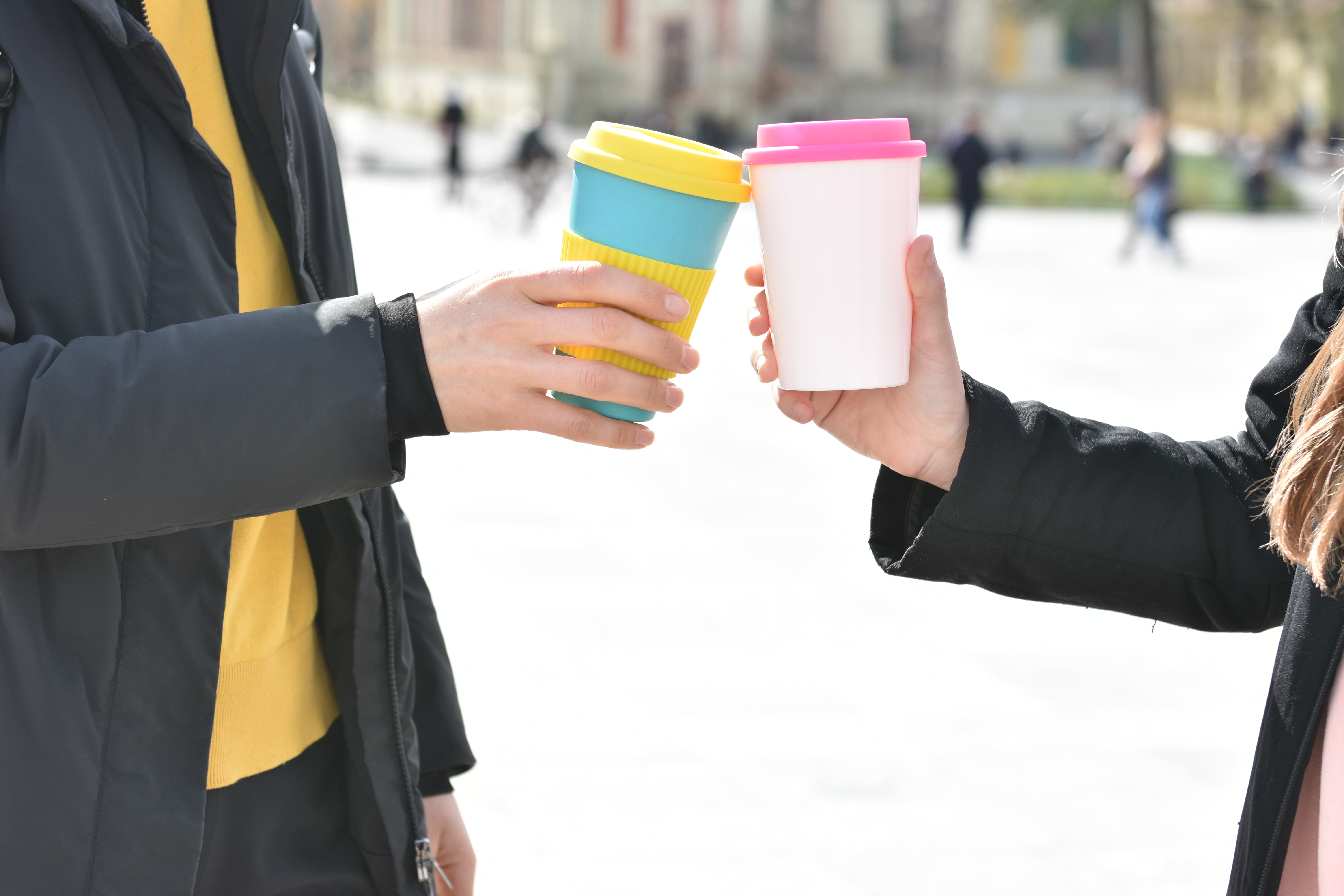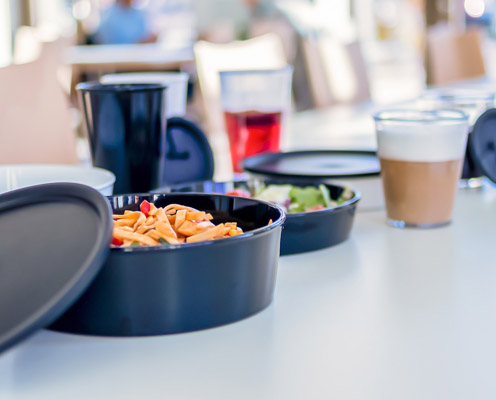TPE for Reusable Dishes
Added value through reusable products
According to the Federal Environment Agency, plastic waste has increased by 3.9 percent to 6.15 million tons. But the vzbv also emphasizes that it definitely cannot be in the interests of consumers when alternatives made of bamboo or sugar cane pose health risks, as established by a study commissioned by the European Network of Consumer Protection Agencies.
Although this study did not entail testing of any product from Germany, the vzbv claims that there are problematic products on the market in Germany, too. This was verified by analyses by the officially approved laboratories for monitoring food and animal health in the states of Baden-Württemberg and North Rhine-Westphalia in 2020, as well as a report by European environmental organizations published in May 2021.

As early as 2019, high volumes of pollutants were established in bamboo cups following a test by the Stiftung Warentest magazine and the following unambiguous advice issued: “Hands off bamboo cups. In more than half of the cups tested, very high quantities of melamine migrate into the beverage. Almost all of the remaining cups use incorrect advertising claims to give the impression that users are buying a purely bamboo product or doing the environment a good turn. Use reusable cups made from materials other than bamboo for hot drinks to go.

Reusable instead of disposable
This also continues to apply following the decision by the German cabinet on amending the Packaging Act. In the future, those buying food to eat on the go will have a choice: as of 2023 at the latest, restaurants, bistros and cafés will always be obliged to offer reusable containers for takeaway coffee and food. This decision was made by the German cabinet following a proposal by the German Environment Minister, Svenja Schulze, and will take the form of an amendment to the Packaging Act. The reusable variant must not be more expensive than the product in single-use packaging. Furthermore, the corresponding reusable cups must be available for all sizes offered of any takeaway beverage.
The goal is for reusable boxes and cups to become the new standard. For that reason, the catering trade will be obliged to offer reusable packaging as well as disposable packaging in the future. Consumers are to be able to opt for reusable products everywhere. This is an important step toward reducing the deluge of packaging in the takeaway sector. After all, the nationwide “Essen in Mehrweg” campaign promotes offering food in reusable packaging. In Germany, 770 tons of packaging waste are still incurred every day by disposable takeaway packaging.
Another important aspect in terms of this amendment is that filling reusable containers supplied by consumers remains permissible during the Corona crisis if certain rules are observed. The German Food Association has published the corresponding hygiene guidelines for this.
TPE solutions from ACTEGA
The motto is reusable instead of disposable, whereby it also depends on the choice of material. A comparison: During the manufacture of reusable tableware made of plastic, energy is saved when compared to other materials. While the processing temperatures for glass are around 800 degrees and as high as 1,000 degrees for porcelain, thermoplastic plastics are processed at around 200 degrees. Contrary to the prevailing opinion that large volumes of CO2 are released during the production of plastic, the comparison outlined below refutes this myth. According to a study by the Plastics Europe trade association, plastic incurs around 1.3 percent of the overall CO2 footprint. Clothing is responsible for 9 percent, food contributes 13 percent, and recreation and vacation account for 18 percent. Reusable tableware made of plastic is durable and can be reused at the end of its life cycle. This is particularly applicable where thermoplastic elastomers such as the SOFT EST.® TPEs offered by ACTEGA are used in production.
SOFT EST.® is a portfolio of TPEs specially for consumer goods applications which can be processed efficiently and smoothly in injection-molding which is also indicated by its good flow properties and easy demoldability in the injection-molding tool. The compounds are particularly suitable for applications of daily use and are correspondingly durable without displaying any deteriorations in quality over longer periods of time. Their mechanical characteristics and good compression set also comply with the demands of users. Comprising 22 materials, the portfolio of flexible TPE compounds offers ultra-transparent, translucent and natural-colored versions in Shore hardnesses ranging from A-20 to A-85. Without exception, all of the materials are food-safe in accordance with EU 10/2011 and FDA regulations and are suitable for applications coming into contact with aqueous, sour, alcoholic, dry and greasy foods taking consideration of the contact surface in the end product.
Those who opt for these TPE formulations choose a particularly resource- and environmentally-friendly alternative. After all, TPE technology from ACTEGA does not contain any PVC plasticizers or phthalates, nor does it require time-intensive or complex temperature vulcanization for processing, which in turn saves time and energy as well as reducing CO2 emissions.
Combine freedom of design with a high degree of processing efficiency, sustainability with convenience, excellent product features with long shelf lives. We find the perfect solution for your requirements,
Do you have any questions? Contact us and we will be happy to advise you on your individual requirements.
Our brands for TPE reusable dishes
SOFT EST®
TPE products specially tailored to the demands of manufacturers of consumer goods applications.